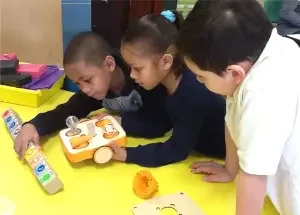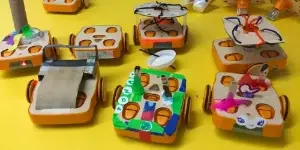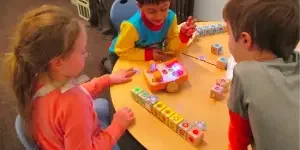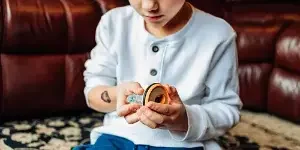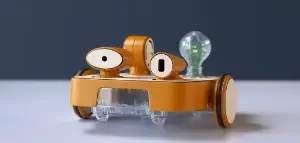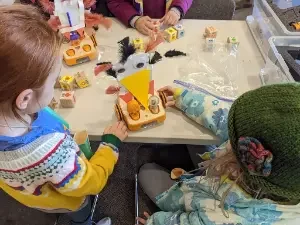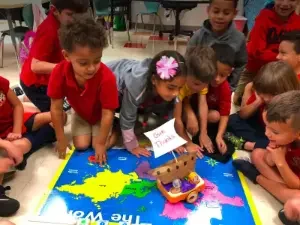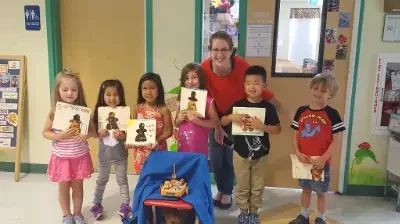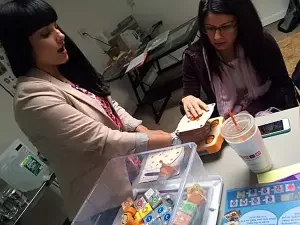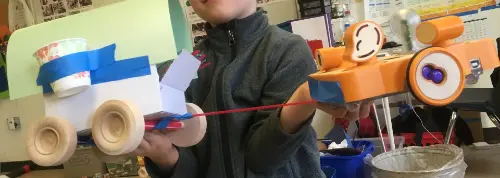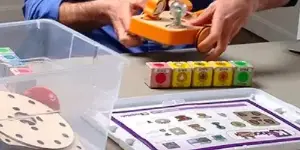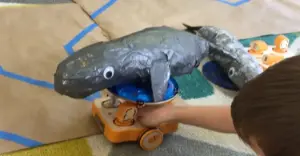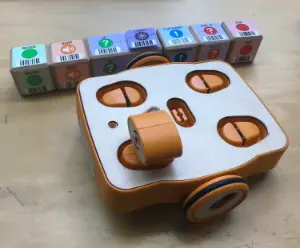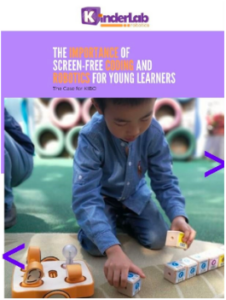The Tufts Daily: More Than Just Code: DevTech Researches New Approaches to STEM Education
Learn more about Professor Marina Umachi Bers, our co-founder and lead at Tufts’ DevTech Group, and her team, who are researching the way young children are taught.
As part of the Eliot-Pearson Department of Child Study and Human Development, DevTech’s research sits at the intersection of technology and early childhood development. Their research findings show the possibility of using innovative educational toys to improve Science, Technology, Engineering and Math (STEM) education for children.
“I think there is something powerful about literacy, not just as a way of thinking, as much as STEM is a way of thinking. Literacy has something else that STEM doesn’t have … Literacy has the power to change the world. We don’t define [DevTech] as STEM people, we define ourselves as literacy people.”
Mitch Rosenberg, CEO of KinderLab Robotics, which manufactures KIBO, explains that KIBO adds a creative side to an otherwise data-driven set of subjects — a combination that he referred to as STEAM, or STEM with art. For young children, this could influence how they approach problems and solutions during the learning process.
Umaschi Bers describes KIBO as a way to recreate the experience of a playground, rather than playpen.
“A playground is open-ended. You can have creative play…you can play with others, you interact socially, you develop language, you engage in conflict, and you learn how to resolve the conflict. You are also problem-solving constantly. If you contrast that playground with a playpen, which is a closed limited space with few opportunities for play, the games given to the kid are chosen by the parent … It’s very safe but very limited.”
Read on for the full article.

